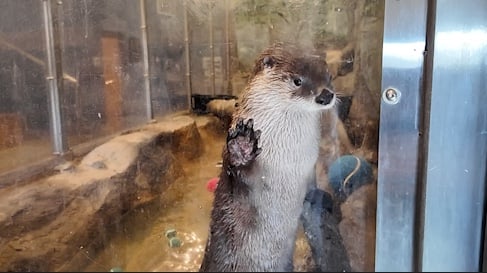State officials are pushing forward a bat bill that would help conserve the endangered species and preserve the forestry industry
MARYLAND. – State Senator Mary Beth Carozza sponsors Senate Bill 946, which proposes legislation to examine endangered bats in the state. The bill will also establish areas to conserve our forestry industry, which is one of the most important in the state and has positive economic impacts.
Senator Carozza, who worked alongside other state officials, recognized the importance and wanted a concrete guideline in place.
“We want to make sure that since they are becoming endangered, that we protect them, but not at the expense of shutting down our forest industry.”
The legislation would allow the Department of Natural Resources to come up with a permitting conservation plan, and also allow land management. Sen. Carozza said the industry is one of the biggest private and public sectors in the state.
“We’re talking about close to 13,000 jobs across the state of Maryland, tied to the forest industry and $3.3 billion for Maryland’s economy.”
The bill has targeted preservation of the Indiana bat, Northern Long-eared bat, and Tricolor bat. All are close to extinction, and that deals with white-nose syndrome. The syndrome is a fungus that can spread from one bat to another. It causes them to wake up during hibernation and eventually starve to death. State officials are looking at ways to combat the issue while keeping the forest in shape. ‘Maryland’s Forest Association’, Executive Director, Beth Hill wants advocates just like Carozza to stand up for the industry.
“That people don’t know, is that the forestry sector of Maryland is 10 times larger than the seafood sector,” said Hill. Bats are important for forestry because they help with pest control, which helps maintain crops. They are also key pollinators for native plants, enabling them to reproduce. Bats can disperse seeds, and that can establish plant populations, and prevent overcrowding of parent plants.
According to Matt Hurd, Eastern Regional Forester for the Maryland Forest Service, forest management is equally important. “In Maryland, we specifically look for our state forest to manage our forests for balance. The balance with people, balance with wildlife habitat, and outdoor recreation.”
Hurd told WMDT, it’s important for smaller forest landowners to be mindful of wildlife habitats. This could be brush piles, bird boxes, or even bat boxes. He recommends larger landowners continue to look into wildfire risk reduction. This could mean installing trails and fire breaks on campus.
SB946 made it across crossover day. It has now been assigned to the first reading in the house.


